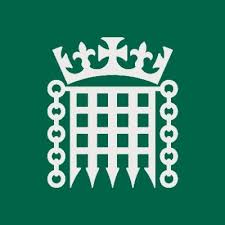Geoffrey Mander – 1932 Speech on Industrial Councils
The speech made by Geoffrey Mander, the then Liberal MP for Wolverhampton East, in the House of Commons on 23 March 1932.
I beg to move, That leave be given to bring in a Bill to encourage the formation of industrial councils and to legalise voluntary agreements when so desired. Already this Session I have introduced two Measures on industrial subjects, and I fully realise that they are controversial, but the one I am bringing forward to-day comes, I think, under the heading of non-controversial, because it has the support of Members belonging to every party in the House. A Bill of the same nature was introduced in 1924, when the Second Reading was carried, on a Friday, by an overwhelming majority. On that occasion the whole of the Conservative party voted for it, the whole of the Liberal party and nearly the whole of the Labour party. That shows the volume of support which the Measure can command in this House. There are in the country at the present time about 37 joint industrial councils, and, including other bodies of a similar nature, there are about 47. They have been doing a great deal of excellent work of a voluntary kind, where the two sides of industry are equally represented—employers and employed—through their respective organisations. In spite of their good work they have been hampered by the fact that the decisions arrived at are purely voluntary and have no legal force, and in fact need not he carried out if anyone does not choose to recognise them. Unfortunately, there have been a certain number of cases where the few employers have defied the decision of the whole trade, have undercut wages, and produced a most unsatisfactory position. Such a state of things is very bad, not only for the good employer, but for the workers.
This Bill attempts, in a very moderate and limited way, to prevent occurrences of that kind. It provides for the formation, on a voluntary basis, of joint industrial councils with equal representation of the two sides. The Measure suggests the discussion of a number of industrial questions described in the Schedule, and the most important Clause authorises the Minister in proper cases to make statutory the decisions arrived at by the joint industrial council. First of all, there is to be an agreement of the two sides and an application to the Minister. If the Minister issues an Order, it can be annulled by a Resolution of this House or the other House. The limited powers under the Bill are amply safeguarded, and nothing of a dangerous nature is ever likely to be put forward. I think it is very relevant to point out that powers of this kind are jointly asked for by many industrial councils themselves. Let me give the example from my constituency of the lock, latch and key industries where the joint industrial council, with the unanimous approval of both sides, asked for powers of this kind. This Measure is purely permissive, and it need not be made use of unless it is desired. You must have agreement on both sides, you must have the consent of the Minister, and the agreement must have the consent of both Houses of Parliament. I hope hon. Members will feel, when this Bill has been printed, and when they have studied it, that it is non-controversial, and we are simply doing something to help those who are trying to help themselves in industry along the lines of conciliation and peace.
Question put, and agreed to.
Bill ordered to be brought in by Mr. Mander, Sir Percy Harris, Mr. Granville, Mr. David Grenfell, Mr. Lovat-Fraser, Mr. Macmillan, and Sir Cooper Rawson.

